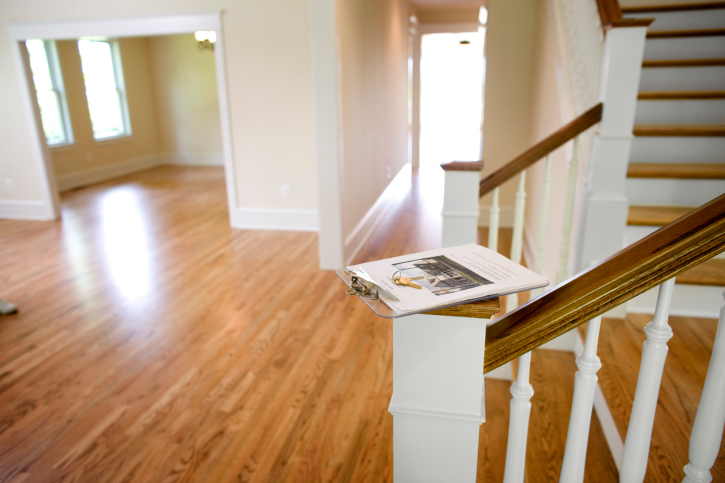
U.S. home price growth continued but slowed in April according to the S&P Case-Shiller Home Price Indices. The national home price index posted year-over-year home price growth of 20.4 percent in April as compared to the corresponding home price growth rate of 20.6 percent in March. Analysts said that diminishing affordability was slowing rapid gains in home prices seen during the pandemic.
20-City Home Price Index: Florida and Arizona Report Top Home Price Growth Rates
The top three cities for year-over-year home price growth in April’s 20-City Home Price Index were Tampa, Florida with a reading of 35.8 percent; Miami, Florida reported 33.3 percent growth and Phoenix, Arizona reported a year-over-year home price growth rate of 31.3 percent.
Nine of the 20 cities included in the index reported higher price gains in April as compared to March. All 20 cities reported higher home prices in April than in March. While analysts noted the slower pace of home price growth, they cautioned against expecting falling home prices any time soon. Craig J. Lazzara, managing director of S&P Dow Jones Indices said that April’s increase in home prices ranked in the top 20 percent of historical experience for every city, and in the top 10 percent for 19 of the cities included in the 20-City Home Price Index.
FHFA House Price Index: Home Prices Rise in April
The Federal Housing Finance Agency, which oversees Fannie Mae and Freddie Mac, reported a year-over-year home price growth rate of 18.8 percent for single-family homes owned or financed by Fannie Mae or Freddie Mac. Home prices of homes owned or financed by Fannie Mae and Freddie Mac rose at a month-to-month pace of 1.6 percent in April.
The FHFA Home Price Index reports on home prices across the nine Census divisions; month-to-month home price growth ranged from 0.3 percent in the East South-Central division to 14.1 percent in the Mid-Atlantic division to 23.5 percent in the South Atlantic division. The FHFA Home Price Index is based on single-family home sales data from more than 400 cities in all 50 states.
 Whether you’re planning on selling your home soon or you want to do a few minor renovations for your own enjoyment, an ailing hardwood floor may be on your list of things to tackle. While this can be a more difficult renovation to complete than many other household items, here are five reasons you may want to move it to the top of the list.
Whether you’re planning on selling your home soon or you want to do a few minor renovations for your own enjoyment, an ailing hardwood floor may be on your list of things to tackle. While this can be a more difficult renovation to complete than many other household items, here are five reasons you may want to move it to the top of the list. During the past year, the housing market has been on fire. There are not a lot of houses for sale, many people are interested in moving, and there is a rising demand from the people who put off moving during the coronavirus pandemic. Furthermore, Millennial demand is picking up, which will only make the housing market even hotter. Recently, a survey found that approximately two-thirds of people who qualify for Generation Y are thinking about buying a home in the near future. Many of them have improving financial circumstances, and they are looking for a way to build wealth and settle down.
During the past year, the housing market has been on fire. There are not a lot of houses for sale, many people are interested in moving, and there is a rising demand from the people who put off moving during the coronavirus pandemic. Furthermore, Millennial demand is picking up, which will only make the housing market even hotter. Recently, a survey found that approximately two-thirds of people who qualify for Generation Y are thinking about buying a home in the near future. Many of them have improving financial circumstances, and they are looking for a way to build wealth and settle down.  Some first-time home buyers are on a tight budget when making their real estate purchase, and there may be an inclination by many to purchase a smaller property, such as a condo, rather than the home they truly want. While there may be some initial financial benefit associated with buying a smaller property, there are a few benefits associated with splurging and buying a larger home as a first purchase. By analyzing these benefits, first-time home buyers can make a more informed decision about how to proceed.
Some first-time home buyers are on a tight budget when making their real estate purchase, and there may be an inclination by many to purchase a smaller property, such as a condo, rather than the home they truly want. While there may be some initial financial benefit associated with buying a smaller property, there are a few benefits associated with splurging and buying a larger home as a first purchase. By analyzing these benefits, first-time home buyers can make a more informed decision about how to proceed.
 If you have paid attention to the housing market recently, you might be thinking about selling your home soon. You might even be thinking about taking on a few remodeling projects in an effort to maximize the return on your investment. On the other hand, not every project will help you turn a profit, and some might even make your house less appealing. Take a look at a few home remodeling projects your should avoid if you plan on selling your house soon.
If you have paid attention to the housing market recently, you might be thinking about selling your home soon. You might even be thinking about taking on a few remodeling projects in an effort to maximize the return on your investment. On the other hand, not every project will help you turn a profit, and some might even make your house less appealing. Take a look at a few home remodeling projects your should avoid if you plan on selling your house soon.